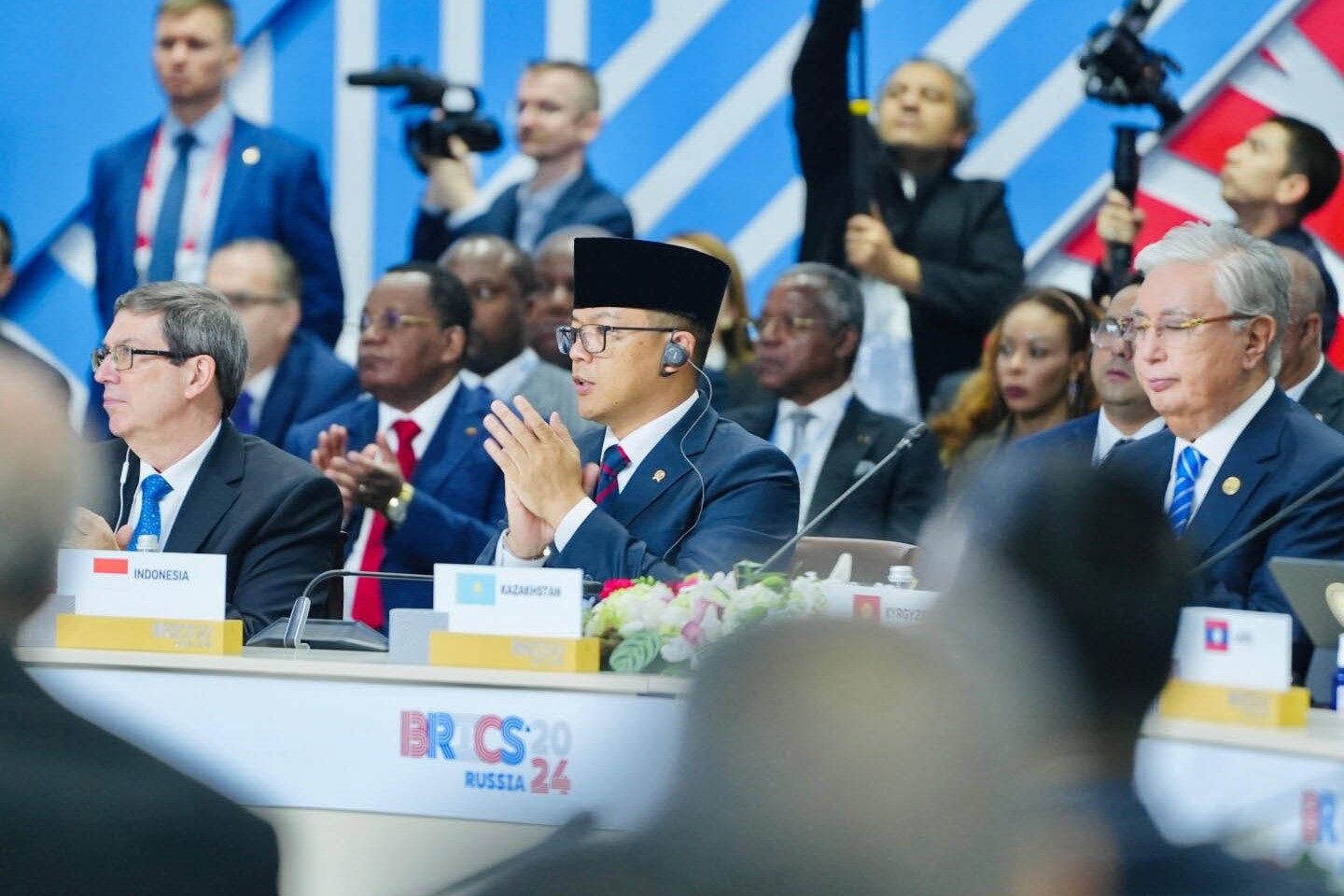Indonesia officially became a full member of BRICS, the economic alliance comprising Brazil, Russia, India, China, and South Africa, on January 6, 2025. This development has sparked discussions among economic experts about its potential benefits and risks for the nation.
According to Josua Pardede, Chief Economist at Bank Permata, one significant advantage is Indonesia’s access to the New Development Bank (NDB), the BRICS financial institution. This access could help fund critical infrastructure projects, including the development of Indonesia’s new capital city, Nusantara.
“NDB provides funding with fewer stringent conditions, offering Indonesia greater flexibility,” said Josua on January 7.
The alliance also provides an alternative to Western economic dominance. Strengthening ties with China, India, and other BRICS members can boost trade and investment in strategic sectors such as technology and energy. Josua highlighted the opportunity for Indonesia to advance its Global South leadership and advocate for developing nations on the global stage.
Another potential benefit is the promotion of local currency use in international trade, reducing reliance on the US dollar and fostering long-term economic stability. However, Josua noted that intra-BRICS trade remains limited and predominantly focused on China, meaning tangible economic benefits may take time to materialize.
Despite these opportunities, BRICS membership poses challenges. China’s economic dominance within the alliance could increase Indonesia’s dependency on Chinese trade and investment. Additionally, alignment with BRICS might strain relations with Western nations, including the US, due to perceptions of Indonesia siding with an alternative economic bloc.
Economic disparities among BRICS members, particularly between China and India, could also limit the group’s effectiveness. Moreover, the current economic struggles of Russia, Brazil, and South Africa could affect the bloc’s overall stability.
“Indonesia must carefully navigate its strategy to maximize economic benefits while minimizing political risks,” said Josua.
Supporting Indonesia’s BRICS membership, National Economic Council (DEN) Chair Luhut Binsar Pandjaitan emphasized the nation’s sovereignty and independence. “Indonesia is too significant to align with just one nation. We must remain independent,” Luhut said during a press conference on January 9.
Luhut underscored that BRICS membership expands market access and enhances Indonesia’s resilience amid global economic uncertainty. With Europe facing an energy crisis, China experiencing an economic slowdown, and the US dealing with tariff unpredictability, Indonesia can leverage its BRICS position to strengthen its economic footing.
In terms of long-term goals, Luhut highlighted Indonesia’s aspirations to become a high-income country by 2040 and a developed nation by 2050. Key initiatives include improving palm oil yields through genomic technology and sequencing, which could boost productivity and secure export targets.
Indonesia’s inclusion in BRICS marks a strategic move to diversify economic opportunities and assert its leadership in the Global South. However, success hinges on a balanced approach to mitigate geopolitical risks and dependence while fostering economic growth.
SOURCE: KONTAN, ANTARA | PHOTO: KEMLU
Read More






 Tuesday, 24-02-26
Tuesday, 24-02-26







